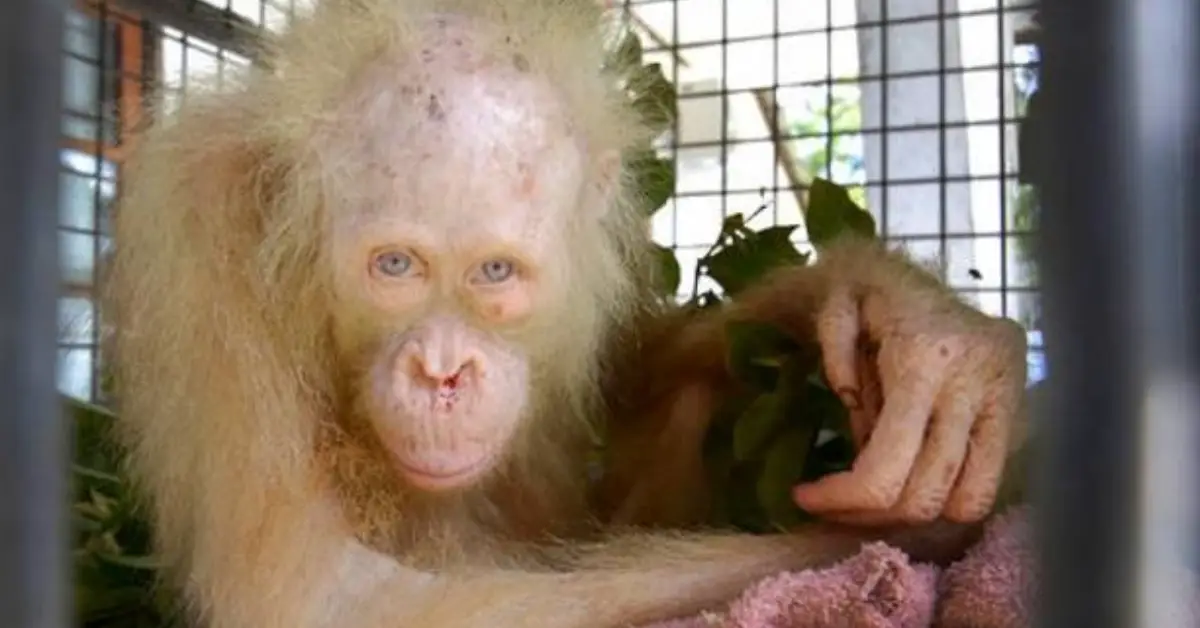Nowadays, more wildlife species than ever are facing extinction, with global warning and deforestation as the main causes of this disaster. As this isn’t devastating enough for the wildlife on Earth, already, there’s the human-wild animals endless conflict with tragic effects on the environment and animals, too.
Among elephants, large felines and countless species of birds, the orangutans are also in danger of extinction, because of human hands. In the last four decades, Bornean orangutans lost over a half of their natural habitats. And the main reason is logging operations. Nowadays, Sungai Putri Forest is among the very few homes left for these animals. Unfortunately, the place is under a major threat, too.

Luckily organizations like the Borneo Orangutan Survival Foundation are desperately trying to save this species. In their latest rescues, the volunteers came over a really unique orangutan, on the Indonesian part of Borneo island. An extremely rare albino ape, kept in a cage by the villagers. Fortunately, the special creatures is now in good hands.

Founded in 1991, the Borneo Orangutan Survival Foundation is an Indonesian non-profit organization dedicated to save the Bornean orangutan. Right now, more than 400 volunteers are trying to fulfil the organization’s goal. Almost 750 orangutans are in the foundation’s care.
While the Bornean orangutans usually have reddish-brown hair, the one found in the Kapuas Hulu district is white haired and blue-eyed, the Telegraph reported.
“Orangutans are rare, and an albino orangutan is even rarer,” Nico Hermanu, a spokesman for the Borneo Orangutan Survival Foundation, told AFP. “Since BOSF was founded 25 years ago, we had never before taken in an albino orangutan at our rehabilitation centre.”

The only two orangutan species that live in Asia, the Bornean and the Sumatran, have both been included on the “critically endangered species list,” by International Union for Conservation of Nature. There are less than 100, 000 individuals left in the wild.

